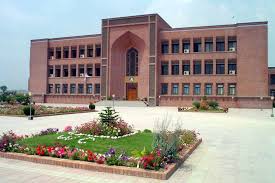The UK is one of the dream destinations for any student. This article explains in detail how to Study at the University of London and what it takes to get into the University of London: Admission, Ranking, University of London Scholarships, Courses, University of London Tuition Fees
The University of London is a cloistered and a federal research university situated in London, England.
The university was first incorporated initially by royal charter in the year 1836, which also makes it to be one of three (3) institutions to claim the title of the third (3rd) oldest University in England.
The university is presently incorporated by a royal charter granted in the year 1863 and is currently governed by the University of London Act 1994.
The University of London currently consists of eighteen (18) constituent colleges, nine (9) research institutes, and a number of central bodies.
The cloistered university housed the oldest teaching hospital in England and was the first to acknowledge women as degree candidates in the United Kingdom and also the first to assign a female as its Vice-Chancellor in the United Kingdom.
Table of Contents
About University of London
The University of London is the biggest university in the United Kingdom by a total number of registered (both internal and external) from 190+ (more than one hundred and ninety) countries, with over 52,000 (Fifty-two thousand) distance learning students in external form and 161,270 (one hundred and sixty-one thousand, two hundred and seventy) campus-based internal students, making biggest university by a number of full-time candidates in the United Kingdom.
The university was established by royal charter in the year 1836, as a degree-awarding examination board for students holding certificates from University College London and King’s College London and “such other Institutions, corporate or unincorporated, as shall be established for Education, either within the Metropolis or somewhere else within the United Kingdom”. The university stirred to a federal structure in the year 1900.
Mainly, constituent colleges rank in the top 50 universities in the United Kingdom, and for most practical reasons, varying from admissions to funding; the constituent colleges operate independently, with some currently obtaining the power to award their degrees whilst remaining in the federal university.
The Different Colleges
The ten (10) biggest colleges of the university are King’s College London, University College London, Queen Mary, City, Birkbeck, the London School of Economics and Political Science, Royal Holloway, Goldsmiths, SOAS, and St George’s.
The specialist colleges of the university include the London Business School, the Royal Veterinary College, and Heythrop College, specializing in philosophy and theology.
Imperial College London was formerly a member before leaving the university a century later in 2007. The city is the latest constituent college, joining on 1st September 2016.
As of the year 2015, there are a total of around 2,000,000 (two million) University of London alumni across the world, which include twelve (12) monarchs or royalty, fifty-two (52) presidents or prime ministers, eighty-four (84) Nobel laureates, six (6) Grammy winners, two (2) Oscar winners and three (3) Olympic gold medalists.
The collegiate research university has also produced Father of the Nation for several countries, including numerous members of the Colonial Service, Ceylon Civil Service, and Imperial Civil Service throughout the British Raj and the British Empire.
In post-nominal, the University of London is typically abbreviated as Lond. or, more rarely, Londin., from the Latin Universitas Londinensis, after its degree abbreviations.
Brief History of University of London
University College London was founded under the name “London University” in the year 1826 as a secular substitute for the religious universities of Oxford and Cambridge.
In reply to the theological controversy surrounding such educational institutions, KCL – King’s College London was established and was the first to be granted a royal charter in 1829.
Hitherto receiving a royal charter, UCL in the year 1834 renewed its request for a royal charter as a university (which was originally applied for in the year 1830), which would bestow it the power to award degrees.
In response, opposition to “exclusive” rights grew amongst the London medical schools. The initiative of a general degree awarding body for the schools was discussed in the medical press. And the evidence was taken by the Select Committee on Medical Education.
Though, the blocking of a bill to open up Oxford and Cambridge degrees to dissenters led to renewed pressure on the Government to grant degree-awarding powers to an institution that would not apply religious tests, mainly as the degrees of the new University of Durham were also to be closed to non-Anglicans.
The university established by the charters of 1836 and 1837 was an examining board with the right to award degrees in medicine, law, and arts.
Though the university did not have the authority to grant degrees in theology, it considered the senior faculty in the other three (3) English universities. In medicine, the university was given the right to determine which medical schools provided sufficient medical training.
In arts and law, by distinction, it would examine students from University College London, King’s College, or any other school or college granted a royal warrant, successfully giving the government control of which colleges could partner with the university.
Beyond the right to submit students for examination, there was no other link between the affiliated colleges and the university.
In the year 1849, the university conducted its first graduation ceremony at Somerset House following an appeal to the Senate from the graduates, who had formerly received their degrees without any ceremony.
About 250 students graduated during this ceremony. The London academic robes of this time were distinguished by their “rich velvet facings”.
University of London Campuses
The University of London owns an extensive central London estate, 12 hectares of freehold land in Bloomsbury, close to Russell Square tube station.
So many of the university’s colleges have their main buildings on the estate.
The Bloomsbury Campus also contains eight (8) Halls of Residence and Senate House, which houses Senate House Library, the chancellor’s official residence and previously housed the School of Slavonic and East European Studies, now part of University College London and housed in its own new building.
Approximately the whole School of Advanced Study is housed in Senate House and neighboring Stewart House.
The university also owns numerous squares that formed part of the Bedford Estate, including Gordon Square, Tavistock Square, Torrington Square, and Woburn Square, as well as numerous properties outside Bloomsbury, with so many of the university’s colleges and institutes occupying their estates across London:
- Clare Market,
- The North and East Wings of Somerset House, the location for the Courtauld Institute of Art and King’s College London, respectively
- The Aldwych, where the London School of Economics and Political Science and part of King’s College London are based
- St Bartholomew’s Hospital,
- The campus of Royal Holloway and Bedford New College including the historic Founder’s Building, and
- The University of London Boat Club in Chiswick.
The university also has numerous properties outside London, including several residential and catering units further afield and the premises of the University of London Institute in Paris, which offers undergraduate and postgraduate degrees in French/historical studies.
University of London Courses
Courses being offered by the University are as follows:
- Business Administration
- Combined Degree Scheme
- Computer Science (including specialisms)
- Computing
- Divinity, Theology, Philosophy, Religion, and Ethics
- Economics, Management, Finance, and the Social Sciences [EMFSS]
- English
- History
- International Foundation Programme
- Laws
- Philosophy
- Teacher Development
Postgraduate Programme
- Applied Educational Leadership and Management
- Centre for Financial and Management Studies (CeFiMS)
- Centre for International Studies and Diplomacy (CISD)
- Climate Change and Development (CeDEP)
- Clinical Trials, Demography and Health, Epidemiology, Global Health Policy, Infectious Diseases, Pharmacoepidemiology and Pharmacovigilance, Public Health
- Education
- Educational and Social Research
- Global MBA
- Human Resource Management (New Regulations)
- Human Rights
- Information Security
- International Business
- International Management
- Learning and Teaching in Higher Education
- Livestock Health and Production, and Veterinary Epidemiology and Public Health
- Organizational Psychology (New Regulations)
- Petroleum Geoscience
- Postgraduate Laws
- Professional Accountancy
- Refugee Protection and Forced Migration Studies
- Sustainable Development (new) (CeDEP)
University of London Admissions
The University Admissions Office (UAO), part of Student and Academic Services, acts as a central inquiry point for prospective students from the United Kingdom and worldwide.
It is responsible for the administrative management and processing of undergraduate and postgraduate applications for programs that the University is offering
Schools, and particularly Admissions Tutors, are the ones to make the admissions decision and have full control of their entry criteria. The UAO will support Admissions Tutors in administering the approved criteria and providing broader support for the overall admissions process.
The Admissions Office is also responsible for the following:
- Processing all applications in agreement with the University’s guidelines
- Making all fee assessments in agreement with the relevant regulations
- Advising on United Kingdom and International qualifications
- Organising University’s Confirmation and Clearing operation
- Giving Management Information on application statistics and associated trend
- Issuing CAS Statements to new students and reporting to the University board.
Application Procedure
How to apply
To apply for admission to the University of London, follow the steps below.
#1. Complete the online application form
Apply for your preferred course through its dedicated course page. You can also apply to study our modules individually in several cases.
#2. Submit the application form
Remember to attach any proof or documents we need and pay any application fee (if it’s relevant to the course you are applying for). We might not be able to process your application fully until we have received everything we need.
To apply for your prior learning to be accredited, please complete the relevant section on the application page.
#3. Await our response
We accept your application by email within 24 hours. This includes a student reference number if you need to contact us about your application. From then, we endeavor to respond within five working days.
#4. Register online and pay course fees
You have up till the registration deadline to accept an offer and pay your initial fees. We send you your study materials as soon as they are available.
University of London Tuition Fees
Undergraduate Tuition Fees
Tuition fees for the undergraduate United Kingdom and European Union (UK/EU) students are being determined by the UK Government.
For the United Kingdom and European Union students beginning their studies in the year 2024, the first-year fee is £9,250. Fees for the year 2024 will remain at £11,250.
However, the University of London can confirm that for EU students beginning their study in the year 2024, fees will remain the same as United Kingdom resident fees for the duration of their course, irrespective of any succeeding changes in government policy.
The institution reserves the right to augment your tuition fees annually in line with the Retail Prices Index to take account of the institution’s increased costs of delivering educational services. If the institution intends to increase your tuition fees, we will notify you ASAP.
For international students, fees may vary from course to course; details can be found on our undergraduate course pages. Fees in each subsequent year of study may also be subject to an annual increase, as detailed above for the United Kingdom and European Union students, but again this is subject to confirmation. If you need to apply for a Student Visa to study in the UK, you will need to provide proof that you can pay your tuition fees as part of the application process.
University of London Postgraduate Tuition Fees
Tuition fees for postgraduate degrees at the University of London vary from course to course and can be found on the postgraduate course pages. Each course page gives details of fees charged if you are a United Kingdom, European Union, and International Student or if you are planning to study full or part-time.
As with undergraduate students, if you need to apply for a Student Visa to study in the United Kingdom, you will need to provide proof that you can pay your tuition fees as part of the application process.
University of London Scholarships
The level of competition for scholarships and educational awards is quite high. We commend that you apply for the course early if you plan to apply for a related award.
For some of our scholarships, you will need an offer to study the course to be eligible for the scholarship. Even where it is not a requirement, holding an offer to study can often profit a funding application. There are a lot of scholarship being offered by the University of London which includes;
Guy S. Goodwin-Gill Scholarship
The Guy S. Goodwin-Gill Scholarship is for the October intake of the MA Refugee Protection and Forced Migration Studies.
Sadako Ogata Scholarship
The Sadako Ogata Scholarship is for the March intake of the MA Refugee Protection and Forced Migration Studies
School of Advanced Study Activist Scholar Bursary
This award is available for students of any nationality to study the MA in Understanding and Securing Human Rights.
Sir John Cass’s Foundation Scholarship
The Sir John Cass’s Foundation Distance Learning Scholarship is available for residents of London under the age of 25.
Scholarships for Refugees and Displaced Persons
Fee-waiver awards to study the LLM, Global MBA, or MA Refugee Protection and Forced Migration programs.
DCMS Scholarships
These are provided by the UK Government for UK residents who wish to change careers through an MSc in Information Security.
MBA UK/EU Bursary
Applicants for the MBA from the UK or EU member states are eligible for a 20% bursary until September.
Postgraduate Laws Scholarship
These awards are for high-performing existing students in a number of countries across Europe, Asia, and Africa.
MBA Scholarships for Women
Scholarships for women of various nationalities to study the Global MBA, celebrating 150 years since we admitted women to higher education.
Malaysian Bar Council Members Bursary
Malaysian Bar Council members can now receive a fee bursary for the Postgraduate Laws program.
Canon Collins Scholarships
These scholarships are for nationals of Angola, Botswana, Lesotho, Malawi, Mozambique, Namibia, South Africa, Swaziland, Zambia, and Zimbabwe to study Postgraduate Law (LLM).
Click here To Access The Scholarships >
DISCLOSURE: This post may contain affiliate links, meaning when you click the links and make a purchase, we receive a commission.






Comments are closed.